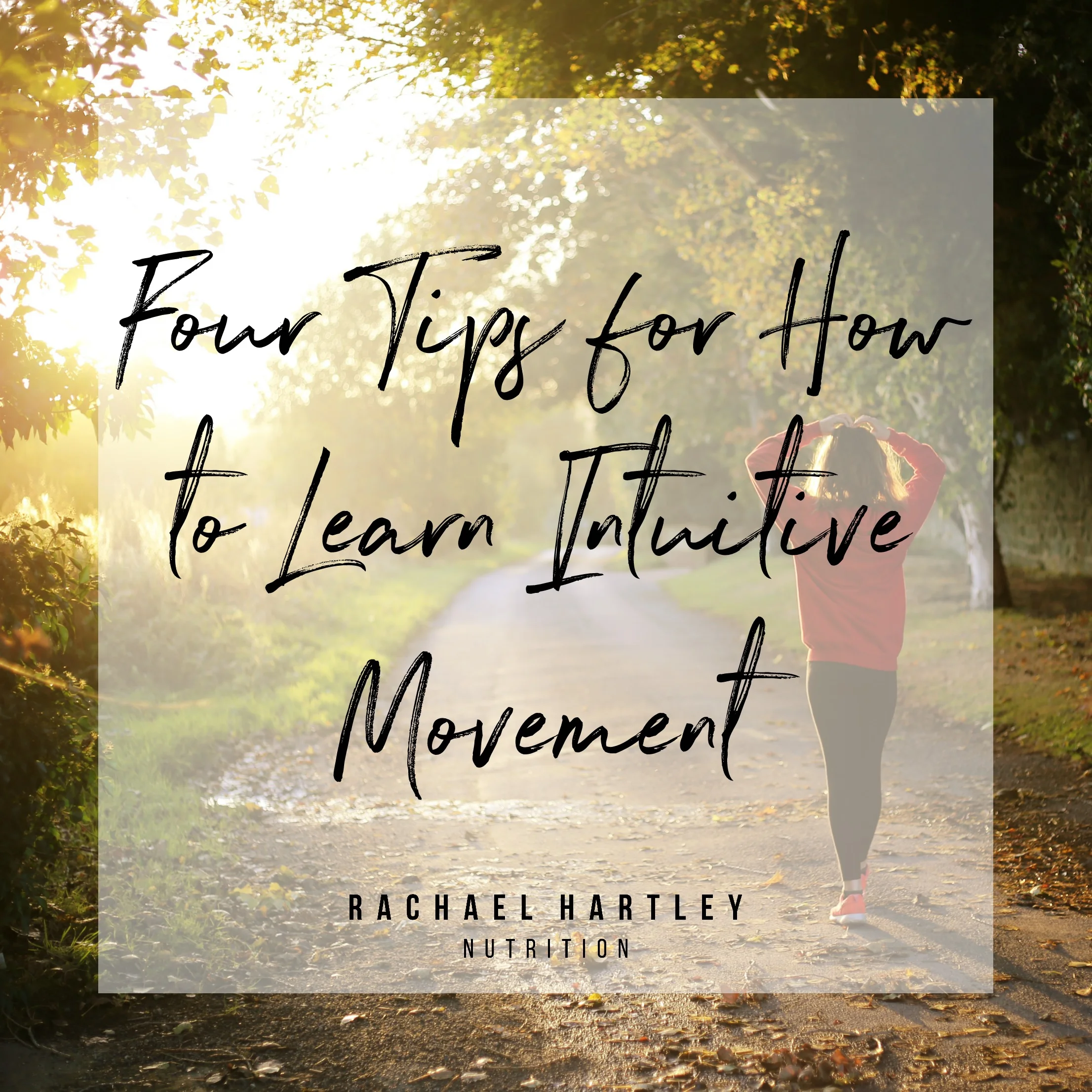The exchange system is a common eating disorder meal plan, but it has many flaws and is often over and inappropriately used. This blog post discusses the problems with the exchange system, and shares other tools for meal planning in recovery.
Read MoreBurnt out? You might not have energy to cook or feel like going out to eat, but your body still needs food. This blog post has ideas for what to eat when you’re too tired to cook.
Read MoreAs any parent can tell you, there’s a lot of pressure to do things just “right.” The unrealistic expectations around parenting are perhaps most evident when it comes to feeding your child. This blog post looks at diet culture and feeding babies, and the harm it does to new parents.
Read MoreOne of the benefits of intuitive eating is that it can help you navigate many different seasons of life. This blog post explores intuitive eating during pregnancy, and how it can help you cope with some of the very common joys of pregnancy, including reflux, morning sickness, and iron deficiency.
Read MoreIf you’re feeling unhappy with your body, more than likely you are fixating on the supposed benefits of weight loss. But do you ever stop to think about what you are sacrificing or missing out on by dieting?
Read More“You can’t practice intuitive eating in eating disorder recovery” is a common refrain in treatment. But is that actually true? In this post, I discuss the 10 principles of intuitive eating and how they can be incorporated in eating disorder recovery.
Read MoreBinge eating disorder is perhaps the most stigmatized and misunderstood of eating disorders, thanks to it’s association with higher weights and out of control eating. Read this post on five things to know about binge eating disorder so you can better understand this serious disorder, and it’s treatment.
Read MoreBecause athletes often require a bit more structure than the average human, some people think that intuitive eating for athletes isn’t possible. This blog post busts that myth and shows you how to adapt the principles of intuitive eating for sports nutrition.
Read MoreJust like intuitive eating teaches you to tune into your body to help guide food choices, the practice of intuitive movement teaches you how to tune into your body to help guide physical activity choices. If you’re healing your relationship with movement, read this blog post for more support.
Read MoreJust like there is a point where healthy eating becomes unhealthy, there is a point when exercise becomes unhealthy. Over-exercise, compulsive/obsessive exercise, and exercise bulimia occur when exercise stops being a choice and becomes an obligation. Read this post to learn if you are engaging in unhealthy exercise.
Read MoreEmotional eating may get a bad rep, but food is one way of satisfying emotional hunger. The problem comes when it’s the only coping tool in your arsenal. Read this blog post to get more ideas for how to cope with intense emotions, with or without food.
Read MoreUnderstanding the difference between emotional hunger vs. physical hunger in intuitive eating can be difficult, as there’s quite a bit of overlap between the physical and emotional sensations of each. This blog posts teaches you how to tell the difference, and what to do if you’re really not sure.
Read MoreWant to lose a pound a week? Diet culture says just cut 500 calories a day. It’s as simple as that, right? Wrong. This post debunks the common diet myth of 3,500 calories in a pound of fat.
Read MoreWhat happens if you like a food that’s a diet food? You might be wondering if you can eat a diet food while practicing intuitive eating. This post explores the nuance in that question so you can eat with confidence.
Read MoreCatching yourself going back and forth to the kitchen when you’re feeling bored? Boredom eating is a common eating behavior people struggle with. This blog post discusses what boredom eating is and shares tips for how to stop eating when you’re bored.
Read MoreFeeling anxious? You might be hungry! While hunger is typically felt in the stomach, for some people, anxiety can be a signal that their body needs food. This post explains more…
Read MoreBody image feeling kind of ick? Body checking is a common behavior that people engage in, especially when they struggle with an eating disorder or disordered eating, and it can fuel negative body image. Read this post to learn what body checking is, and how you can stop it.
Read MoreFeel like you can’t stop eating sweets? If so, you might be wondering if sugar addiction is real. Here's a look at the research around food addiction, and another reason for why you might feel out of control around food.
Read More


















